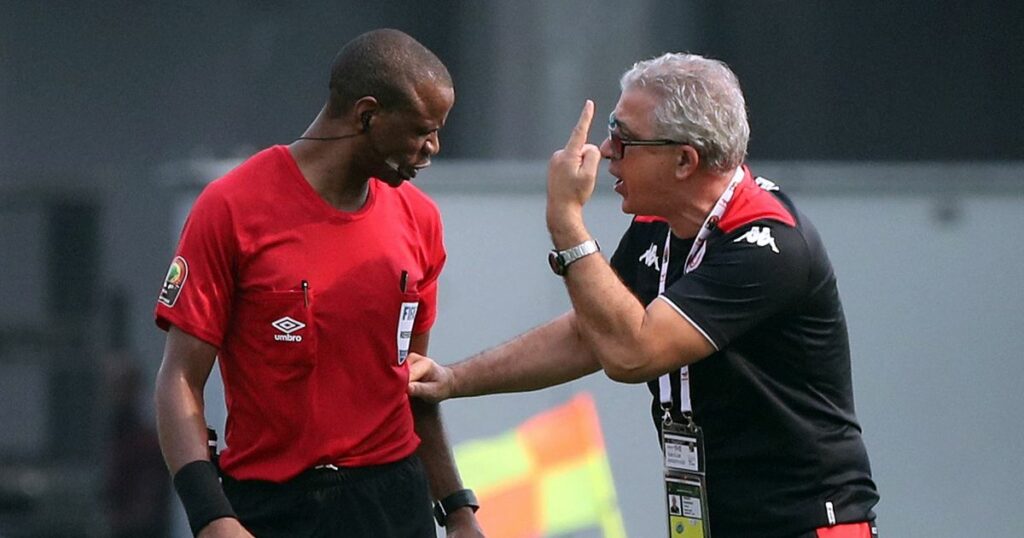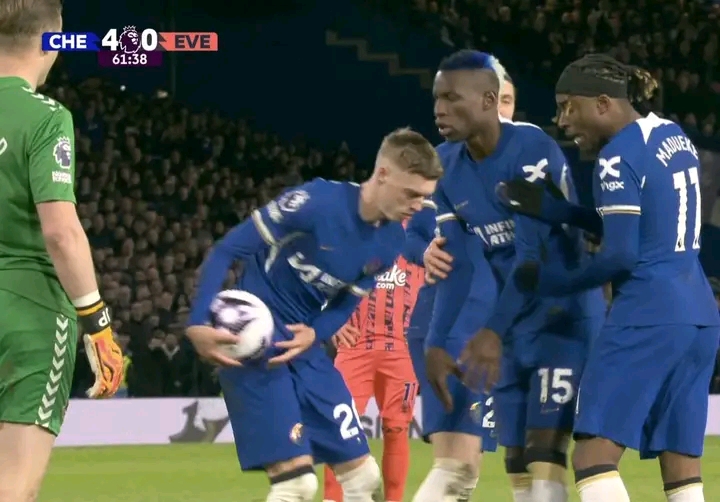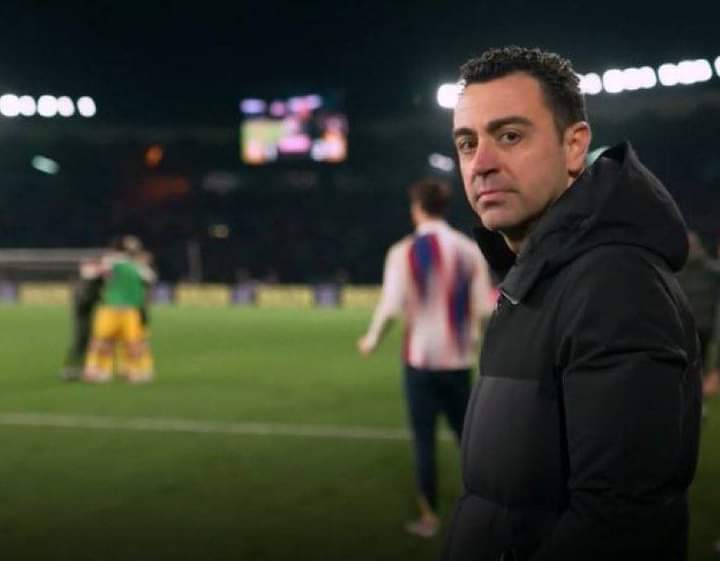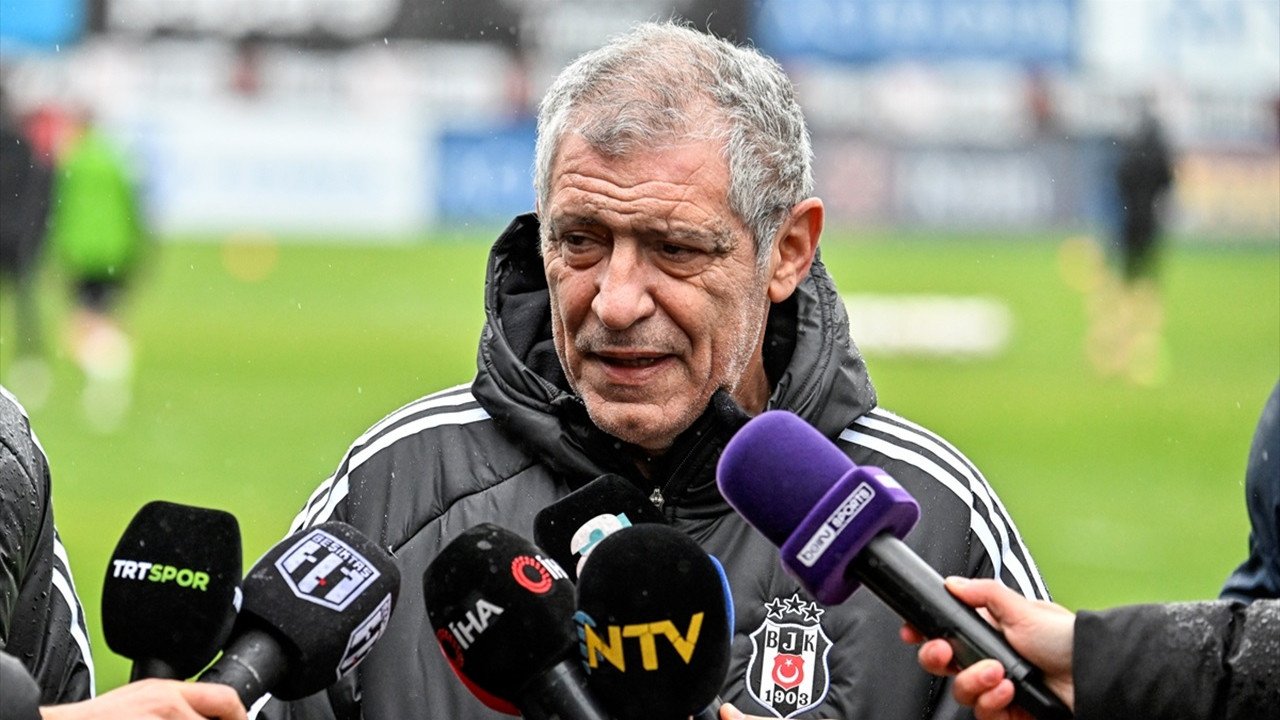Coaches and players competing in Cameroon’s AFCON have urged referees to use VAR more effectively and avoid the expensive blunders that marred Mali’s 1-0 win over Tunisia on Wednesday.

Despite the Confederation of African Football’s explanation that referee Janny Sikazwe was suffering from “heat stroke and extreme dehydration” after his string of errors overshadowed Mali’s victory, skepticism about the continent’s officials continues.
“I typically don’t talk about officiating because it’s not my way,” Ghana coach Milovan Rajevac told ESPN.
“But there was a lot of controversy and the whole world is talking about this.”
“I believe this [bad refereeing] is becoming an issue, especially after what happened [with Sikazwe].”
“I’m hoping that the officiating will be less contentious and more equitable in the following days of the competition.”
The Zambian umpire at the center of the officiating controversy came into the tournament as one of Africa’s most well-known officials, having officiated the Nations Cup final in 2017 and two World Cup matches in 2018.
His reputation, on the other hand, is in shreds, with CAF compiling records from the match’s refereeing team in an attempt to figure out why Sikazwe prematurely halted the competition twice — once in the 85th minute and again 18 seconds before the clock struck ’90.
At the end of the game, Sikazwe was besieged by disgruntled Tunisian officials, but the 1-0 Mali victory remains as the Carthage Eagles declined an invitation from CAF to replay the closing minutes of the game.
Sikazwe was later rushed to hospital after appearing to lose focus in the last phases of the match, but the incident has harmed the continent’s authorities’ perception.”

“I hope [CAF] can solve whatever has been going on because small faults may cause enormous problems for players and teams,” Ghana striker Richmond Boakye told ESPN.”
They’re human, and they can make mistakes, but a bad decision can send a team home, while a good decision can send a team to the championship game — they have to make the right decisions, because once you make a decision, you can’t alter it.
“I’m hoping they’ll apologise.”
For the first time in the competition, the Video Assistant Referee has assisted officials in correcting several initially wrong rulings, most notably in the opening match, when VAR awarded Cameroon a penalty after a clear foul by Burkina Faso’s Bertrand Traore.
Sikazwe, on the other hand, chose to disregard VAR recommendations in order to overturn a red card he had given to El Bilal Toure, causing concern within Mali’s ranks.
Several AFCON competitors are concerned about how technology will be used throughout the competition.
“Even in our encounter against Mali, there was a potential penalty for us at the conclusion of the first half, but VAR didn’t care to examine,” Rajevac added, “and there were many questionable decisions.”
“After the game, I praised the officials — they’re people, and they’re bound to make mistakes — but with VAR, the frequency of errors should be reduced.
“It must be used wisely, and we think it will improve the game’s quality and bring more justice to the game. These kinds of errors shouldn’t happen as frequently as they do.”
“The greater concern for Gabonese defender Johann Obiang is that the storm surrounding Sikazwe, as well as the officiating, would detract from the quality and enjoyment on display at the AFCON.
“We are upset by this,” he told ESPN. “We know this sport is watched by everyone, so having this kind of [refereeing] performance makes us unhappy.”
“We can say that’s just a mistake that happens; all refs make mistakes, and you can’t criminalize what happened and treat it as if it were the worst mistake ever.”
“However, we simply hope that those errors ensure that things go more or less regularly in the future.”




![Mauricio Pochettino Fires Warning to Nicolas Jackson And Noni Madueke After Penalty Row With Cole Palmer [Video]](https://futballnews.com/wp-content/uploads/2024/04/Screenshot_20240416-065608-218x150.jpg)



